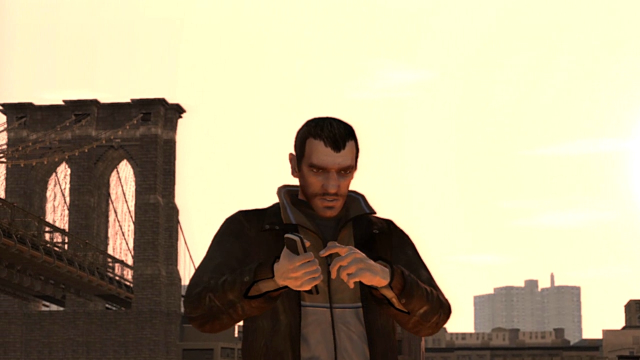How Rockstar made us stop worrying and love the cell phone

Niko’s cellphone was annoying as all hell. I hated it. I hated Brucie, and I hated him even more when he called. I liked the Jamaican guy, but I hated when he called. I liked a lot of people, but I hated when they called. I wanted do a mission, or go on a rampage, but no, I had to feel bad because I didn’t meet my cousin Roman to play pool. These feelings are what make the cellphone such an important part of the game.
When players expressed outrage that Niko was constantly being called by his friends in Grand Theft Auto IV, that he seemed unable to escape a constant barrage of requests to compete in minigames and scope out several pairs of ‘beeeeg Emerican teeeettees,’ it was, in part, a declaration of their frustrations with the modern world. The increased social awareness of our gameplay has gone hand in hand with a loss of privacy in our lives. Niko’s phone, and the inundation of calls he receives from his friends and business contacts, remind us of how much our personal spaces have truly eroded.
For many, Niko’s phone was emblematic of everything that the Grand Theft Auto series had lost in its transition to the current console generation. The relationships that Niko mostly appreciates and enjoys, and the phone calls that come from them, can be a burden for a player who simply wants to gallivant around the city, joyriding and blowing up cop cars. But the phone is a reminder, too, that Niko isn’t alone in Liberty City, and that the city doesn’t belong to him, nor Johnny, Luis, or even you as the player. In a game where anonymous pedestrians can be mowed down with little repercussion, it’s the phone that best reminds us, and Niko, that we’re all connected.
Okay so maybe we don’t want to go around blowing up cop cars, but time to ourselves (time to gallivant, as it were) is harder to come by. I still hate the cellphone in GTA IV, but now I realize it’s because I hate my own.



